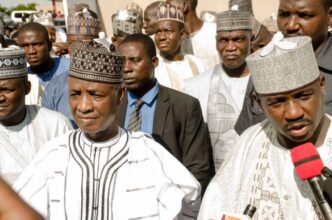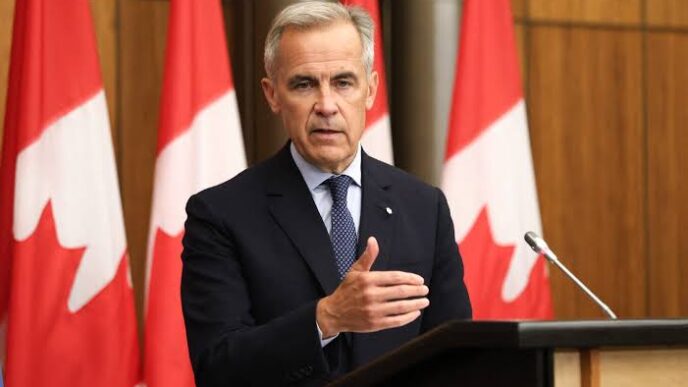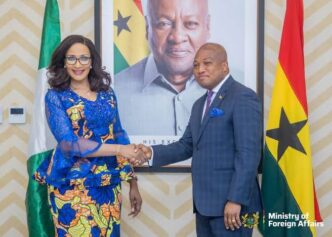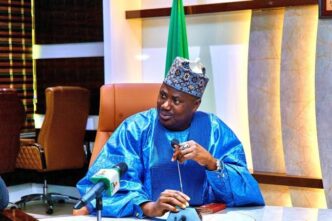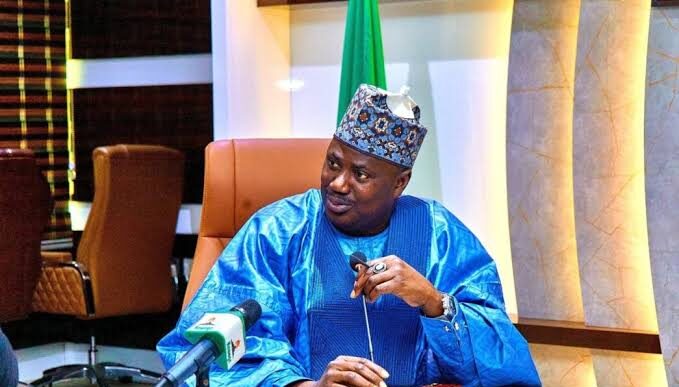Former Lagos State Governor and ex-Minister of Works, Babatunde Fashola, emphasised the importance of preserving the history of Lagos to prevent distortion and promote its values.
Gatekeepers News reports that Fashola made the remarks during the public presentation of “Discover Lagos State: A History Puzzle Book (Volume 1),” which took place at the Civic Centre in Victoria Island, Lagos.
At this event, Governor Babajide Sanwo-Olu, represented by Deputy Governor Dr. Obafemi Hamzat, also highlighted the significance of documenting the state’s history. He praised the Lagos State Records and Archive Bureau for their timely release of the book.
Fashola referred to the digital archives of the University of Glasgow, pointing out that the contributions made by the university’s staff and students have significantly influenced historical development in various countries, including the establishment of landmarks. He stated, “The archival heritage is a valuable testimony to the sociopolitical and economic development of humanity.”
“For instance, the Glasgow University archives service gives fascinating insights into the influence that the university, its staff and students have had in the history and development of many countries, including Nigeria,” he said.
He said records also contain information about the first Nigerian students at the University of Glasgow at the time, including Dr Issac Ladipo Oluwole, who was enrolled in 1913 and graduated in 1918.
Referencing the archive, Fashola said, “Dr Ladipo Oluwole returned to Nigeria to become the first African medical officer of health in the Lagos colony.
“He pioneered school health services, with school inspection and vaccination of children in their schools, and started the first Nigerian school of hygiene at Yaba in Lagos in 1920. So that’s the Ladipo Oluwole. But the records were kept well in Glasgow, Scotland.
“So those of us who drive through streets such as Ladipo Oluwole Street in Ikeja will probably now understand and contextualise the contributions of such a man and why it was considered such a high honour to immortalise him by naming a street in his memory.
“But it is perhaps instructive that we are discussing street naming and street unnaming and I keep my gunpowder dry,” he added.
“Today I reiterate those words about street naming and Dr Oluwole and with a greater conviction to reinforce my message that the preservation of our history and the documentation of our progress should be taken seriously,” Fashola said.
The former governor said the work of LASRAB extended beyond the production of educational books, noting that the ultimate goal was to create a central hub of a trustworthy and comprehensive repository of Lagos State memory.
“To make this a reality, LASRAB must be adequately resourced. Mr Governor, LASRAB must be well-funded.”
On his part, Hamzat said he was delighted for the presentation of the puzzle book on the history of Lagos State, describing it as an “initiative that uniquely blends education, creativity and cultural preservation.”
He said, “This project is an innovative learning tool designed to stimulate young minds, especially.
“It will also promote curiosity, deepen our pride as Lagosians and our collective understanding of the history and heritage of our dear state.”
Hamzat hailed Fashola, whose administration established LASRAB.
“I recall very clearly that he wrote an executive order directing that all documentation, when we build schools, when we build bridges and anything, we just have five copies, one in the Ministry of Science and Technology and one in LASRAB, and all over.
“This foundational act was not merely administrative. It was an intentional effort to institutionalise, preserve, document, and disseminate Lagos’s narrative for posterity.”
He added, “It is important that we don’t only understand ourselves, but we must understand our history so we don’t lose ourselves.
“This book is a creative method of crafting historical consciousness that informs while it also entertains. That way, we don’t distort our history and we don’t misunderstand our being.”





